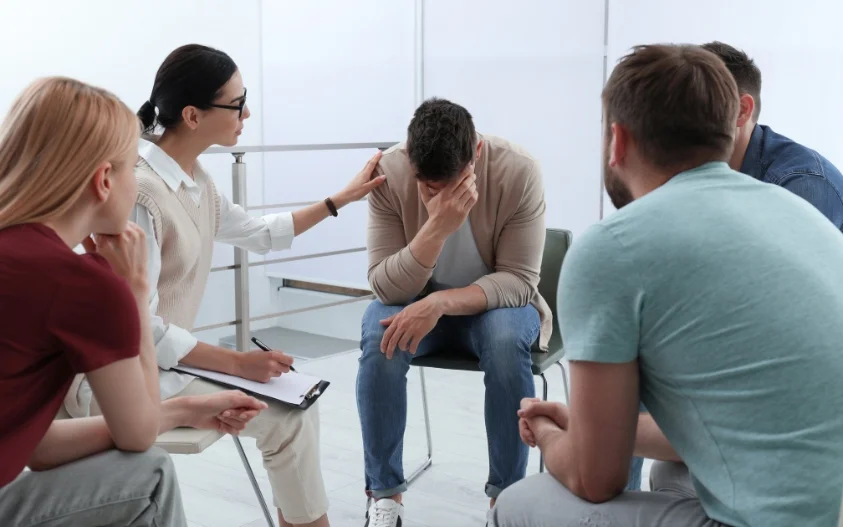24/7 Helpline:
(866) 899-111424/7 Helpline:
(866) 899-1114
Learn more about Bipolar Disorder Treatment centers in Ogden
Bipolar Disorder Treatment in Other Cities

Other Insurance Options

Sutter

Choice Care Network

GEHA

Anthem

BHS | Behavioral Health Systems

CareFirst

AllWell

Health Choice

Kaiser Permanente

Providence

Magellan Health

Humana

Coventry Health Care

PHCS Network

BlueCross

Aetna

ComPsych

Horizon Healthcare Service

Magellan

UMR












